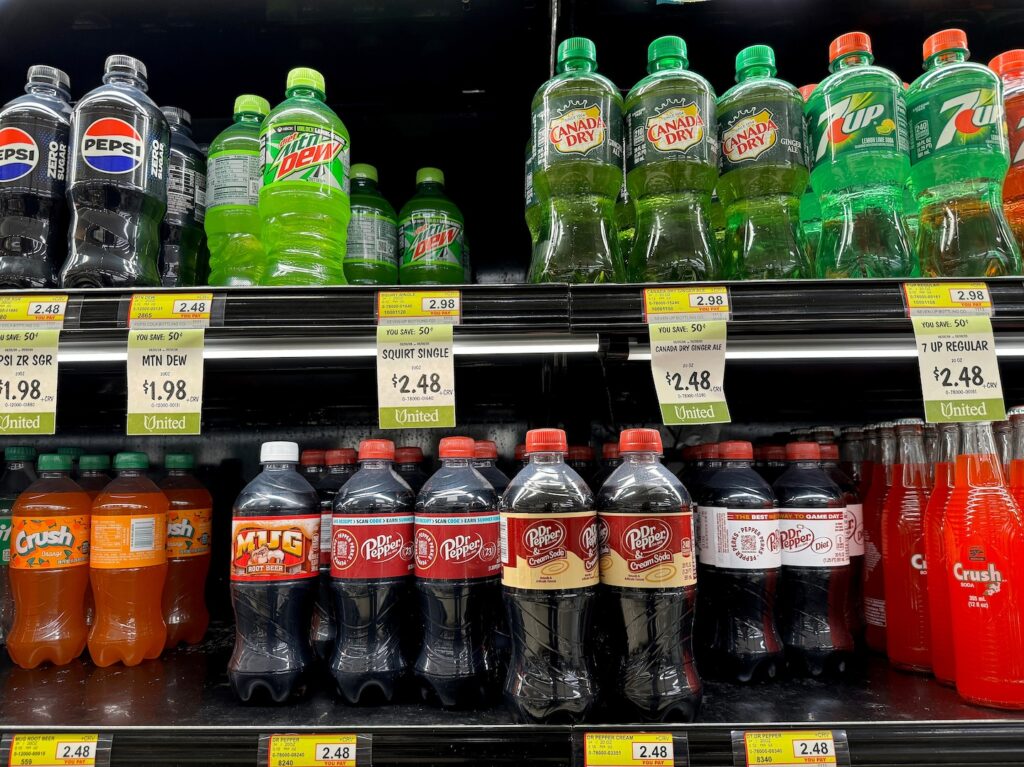It’s been a bad year for ultra-processed foods: In January, a British Medical Journal review compiled the results of 45 studies that found a direct link between ultra-processed foods and negative health effects, from increased deaths from heart attacks and strokes to a higher risk of developing diabetes, cancer, sleep disorders, anxiety and depression.
A new study published last month in the journal Neurology uncovered a link between ultra-processed foods and dementia. Researchers found that a 10 percent increase in intake of these foods was associated with a 16 percent higher chance of developing cognitive impairment. This increase occurred even in people who continued to eat a healthy diet.
The science is compelling, but data alone doesn’t change behavior. The modern American diet relies heavily on ultra-processed foods — foods high in chemicals like emulsifiers, artificial colors, flavors, preservatives, and thickeners — with roughly 60% of daily calories coming from these substances. Consumption has increased over time and is widespread across all age groups, including children.
It’s difficult, if not impossible, to eliminate all ultra-processed foods from today’s diet, but there are ways to reduce your intake. Here are five ways to get you started.
1. Choose less processed foods. The healthiest choices are foods that are unprocessed — foods that come directly from plants and animals, like fresh fruits and vegetables, poultry, fish and eggs.
 Follow this author Leana S. Wen’s opinion
Follow this author Leana S. Wen’s opinion
The second option is lightly and minimally processed foods — think chopped and frozen vegetables, shelled nuts, etc. This level of processing doesn’t change the quality of the food significantly.
A third option is foods with fewer added ingredients, such as crackers made with only wheat, oil and salt, or whole wheat bread baked with flour, yeast, sugar, salt and oil.
Ultra-processed foods are full of additives. These include traditional junk foods like soda, chips, candy, and doughnuts, as well as hot dogs, commercial white bread, french fries, many pre-made meals, and frozen pizzas.
When possible, choose the least processed options: chicken breasts over nuggets, apples over fruit gummies.
2. Shop the outer perimeter of the store first. Grocery stores typically have fresh foods on the outer perimeter and processed and ultra-processed foods in the center aisles. Try to shop near the perimeter as much as possible. (But not everything on the perimeter is healthy. For example, deli meats, which are ultra-processed foods, are often found on the perimeter.)
Unprocessed whole foods don’t have or need labels because the only ingredient is the food itself. For other foods, carefully review the ingredients list. Choose products that have as few additives as possible and are made primarily from whole food ingredients.
3. Beware of ultra-processed foods masquerading as health foods. It’s unfortunate that manufacturers are allowed to advertise ultra-processed foods as “nutritious” or “healthy” when they are anything but. Be careful – many of the products labeled this way are no different from any other junk food.
Breakfast cereal is a big problem, as many brands contain high amounts of sugar, various flavorings and preservatives, as well as granola bars and energy drinks.
Instead of these cereals, opt for oatmeal and sweeten it with honey and fresh fruit. Opt for nuts and dried fruit for on-the-go snacks. Energy drinks should fall into the same category as soda and are best avoided.
4. Cut back on sugary drinks. Soda is a good place for many people to start cutting back. It’s pretty obvious that soda is junk food. All store-bought soda is ultra-processed, including diet sodas and those that claim to have fruit ingredients.
The obvious choice to switch to is water, but if you miss the fizz and flavor, try sparkling water with a splash of fruit juice.
5. Think harm reduction, not elimination. Completely avoiding ultra-processed foods in our food environment would require a huge investment of time and resources. This is not realistic. Instead, we should aim for harm reduction.
It means being mindful of your choices and cutting back on unhealthy substances wherever possible. Sometimes, the win is just to choose the lesser option. Research shows that the more ultra-processed foods we eat, the more detrimental they are to our health, so every little bit counts.
Ultimately, what we should all be advocating for is policy change to stop incentivizing manufacturers to produce ultra-processed foods. It shouldn’t take much effort to avoid these chemically engineered substances that stimulate cravings and ultimately shorten our lives.
Do you have any advice for eating healthy and avoiding ultra-processed foods? We’d love to hear from you and we’d love to feature your advice in the next issue of The Checkup newsletter.


